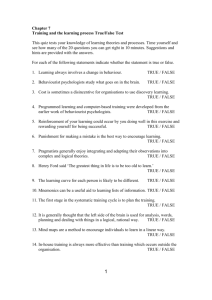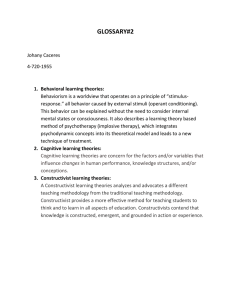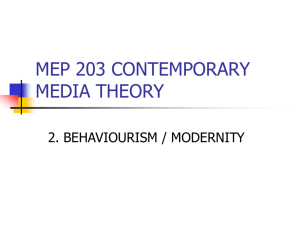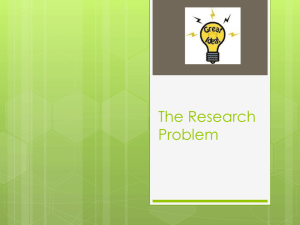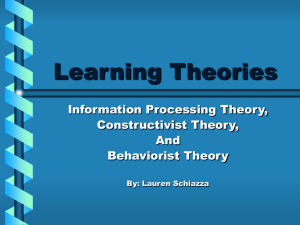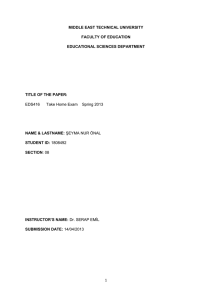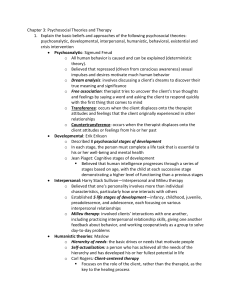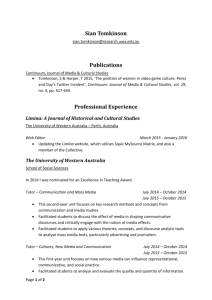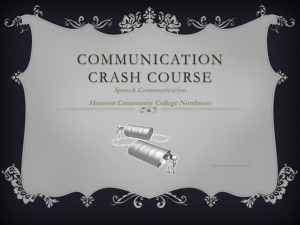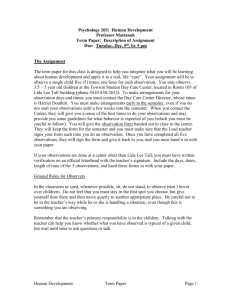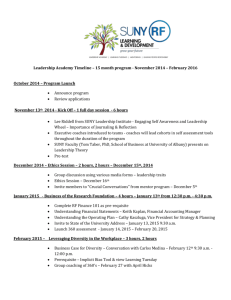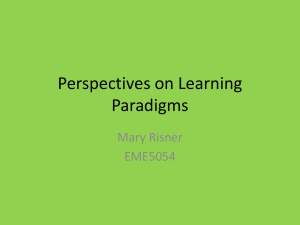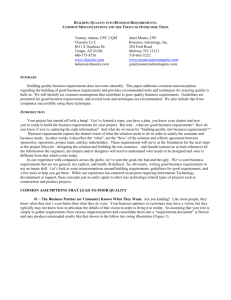Five influential theories of learning
advertisement
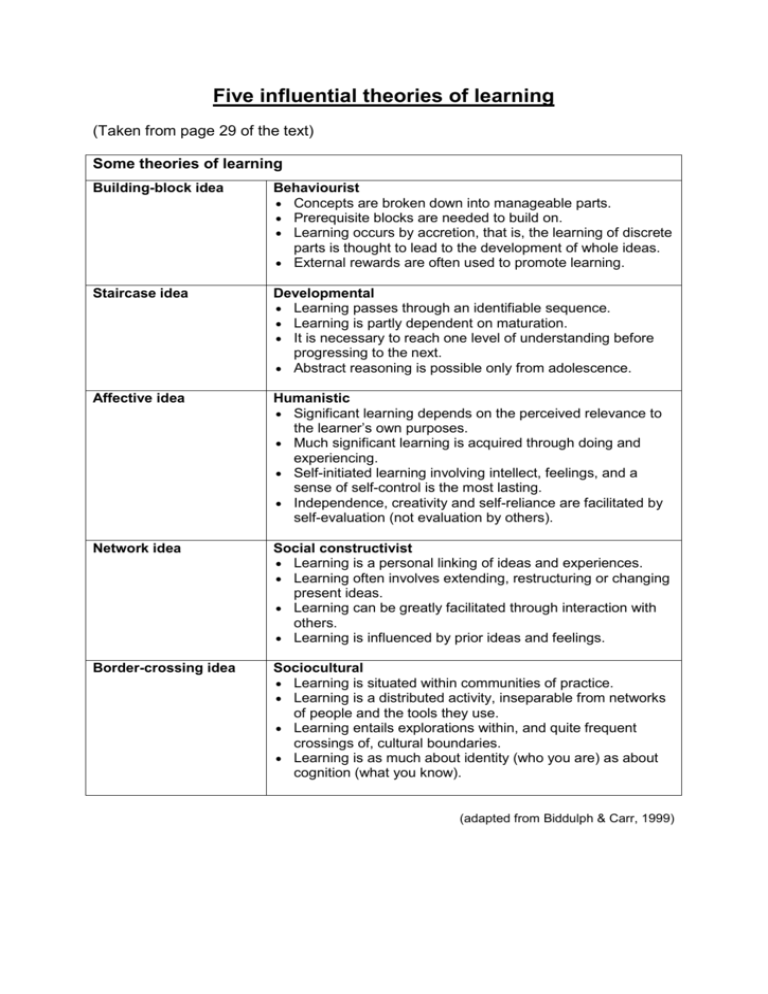
Five influential theories of learning (Taken from page 29 of the text) Some theories of learning Building-block idea Behaviourist Concepts are broken down into manageable parts. Prerequisite blocks are needed to build on. Learning occurs by accretion, that is, the learning of discrete parts is thought to lead to the development of whole ideas. External rewards are often used to promote learning. Staircase idea Developmental Learning passes through an identifiable sequence. Learning is partly dependent on maturation. It is necessary to reach one level of understanding before progressing to the next. Abstract reasoning is possible only from adolescence. Affective idea Humanistic Significant learning depends on the perceived relevance to the learner’s own purposes. Much significant learning is acquired through doing and experiencing. Self-initiated learning involving intellect, feelings, and a sense of self-control is the most lasting. Independence, creativity and self-reliance are facilitated by self-evaluation (not evaluation by others). Network idea Social constructivist Learning is a personal linking of ideas and experiences. Learning often involves extending, restructuring or changing present ideas. Learning can be greatly facilitated through interaction with others. Learning is influenced by prior ideas and feelings. Border-crossing idea Sociocultural Learning is situated within communities of practice. Learning is a distributed activity, inseparable from networks of people and the tools they use. Learning entails explorations within, and quite frequent crossings of, cultural boundaries. Learning is as much about identity (who you are) as about cognition (what you know). (adapted from Biddulph & Carr, 1999)
